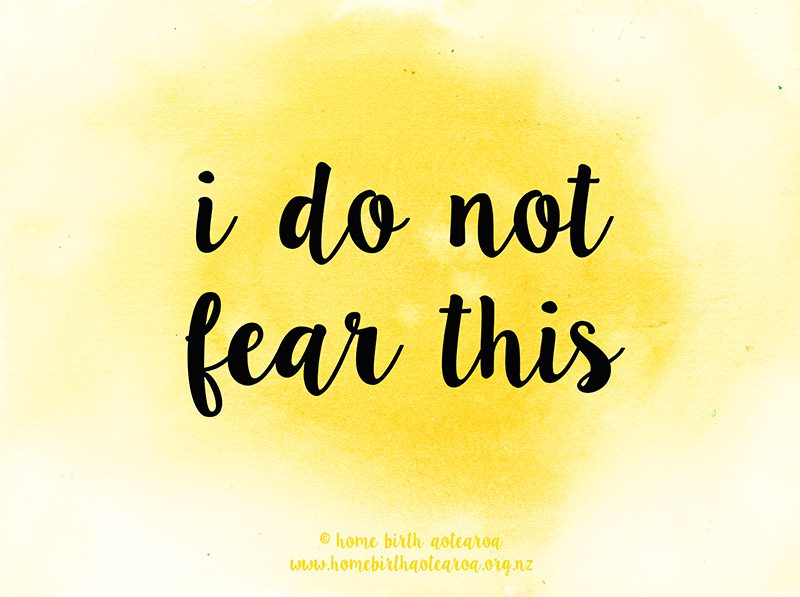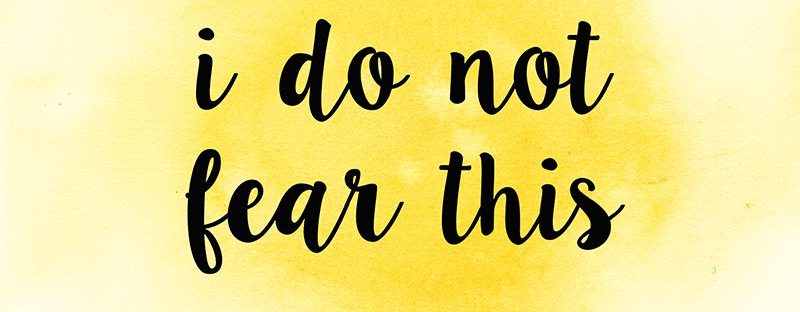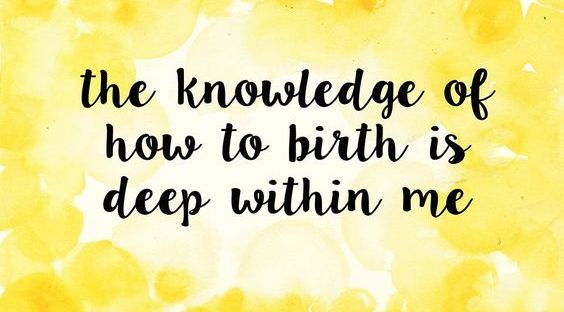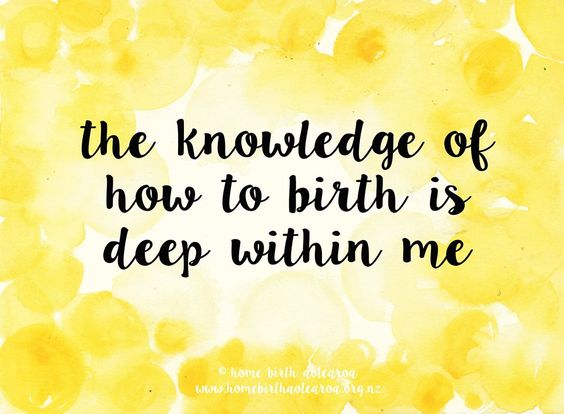Following on from my last blog about fear in childbirth, I though I’d have a look at pain relief options in labour, both medical and natural.
I kind of touched on the idea in my last blog about how your mindset can have an effect on your perception of pain but I wanted to start by looking at that a bit more closely.
If you’re scared, stressed or anxious, how does your body normally feel? I know that before I realise it, my shoulders end up at my ears and my jaw is tense. Now imagine trying to birth a baby through muscles that are tense and rigid. It sounds more painful doesn’t it?
Well, I hate to point out the obvious but it probably will be more painful.
Relaxing as much as possible during labour is one of the best ways to help reduce the pain or discomfort you’re feeling. Sure, that’s easier said than done when you’re waiting to push a baby out but there are other tactics to use with this.
Instead of waiting for and anticipating your next contraction, try to do something that will keep your mind occupied. One of the lovely women I worked with was sat on a birthing ball and using the bed to play a game of cards with her husband. I’ve also heard of a private obstetrician telling the women in his care that he would like them to bake a birthday cake for their little one once the labour begins so that they are distracted by simple and familiar tasks.
Think about it.
How many times have you cut or grazed your skin somewhere and not noticed it until much later in the day because you were busy doing whatever you were doing at the time?
As soon as you are able to switch off your “conscious brain” and allow your body to do its thing, you will instantly feel less pain and discomfort.
That’s the quickest and easiest way, now lets look at some of the other options available to you:
Doulas
Having continuous support in labour from someone that you trust has been shown through research, to reduce the requirement for pain relief as well as less interventions and better outcomes all round for mum and baby. For some reason, the research showed that the continuous support was most effective when it was provided by someone who was neither a member of hospital staff or within the woman’s normal social network.. Obviously I’m going to advocate for every woman to have a doula, we’re wonderful things to have. But there are some important things to consider before hiring a doula.
It’s important to meet a few different doulas before deciding who to hire as you need to be sure that you “click” and feel comfortable around them, not to mention trust them. The main risk here is if the doula is unable to attend your birth due to urgent personal circumstances. This is usually rare, and some doulas will also suggest a back-up doula to attend if she is unable to.
Hypnobirthing
I find the term “hypnobirthing” quite misleading as I think it gives the impression of hippy dippy chanting and OM’s which isn’t always everybody’s cup of tea. (I know the last time I was asked to chant “OM” during a yoga session that I spent the whole time trying not to giggle!) Hypnobirthing is more about giving you and your partner the tools to stay calm and focussed during birth. Everybody would have a much more positive birth if they used the tools and techniques from hypnobirthing classes. There’s so much more to tell you but I would have to dedicate a whole blog to it so go and have a wee read through “Why Hypnobirthing Matters” by Katrina Berry to find out more. It’s a fascinating little book and small enough to fit in a handbag too! (Always a win in my world!)
Keeping Active
Being able to freely move around during labour is another way to help ease discomfort. This allows you to find positions that are comfortable for you and also changes your mindset for taking an active role in your birth rather than passively lying on the bed. Different positions also help encourage baby’s head to put pressure on your cervix, which will trigger more oxytocin and prostaglandins to help your labour progress.
Heat/Cold
Having a hot water bottle or microwave heat pack can help soothe any discomfort felt in the lower back during contractions. Some women also prefer ice packs or frozen peas. Everybody is different. This is sometimes difficult to facilitate in a hospital setting depending upon the hospital policies so do try and find out in advance..
Aromatherapy
There are numerous essential oils, which can be used during labour to help with various issues. Whether you’re looking for a calming effect or something to help with nausea, there is an oil for everything. I would recommend consulting with someone who is trained in aromatherapy to check which oils are best and safe to use in pregnancy as some may have an adverse effect.
Massage
A great way to encourage relaxation, massage can be given by your partner, your doula or even the midwife if she is happy and comfortable to do so. Most women find very firm pressure in the lower back area the most useful for alleviating any discomfort during contractions. Massage can be combined with aromatherapy for better effect.
Some midwives and doulas will also do a “hip press” which is when they squeeze your hip bones together (usually while you are standing or on all fours) to take the pressure off your pelvis and try to open up the pelvic space.
Soft touch massage is also a way to trigger the release of more oxytocin. Gentle strokes of finger tips over your back and neck can help encourage the shy hormone.
Kissing/Masturbation
We’ve already mentioned how massage can be great at promoting oxytocin production. Following on from this, it makes sense that sensual kissing and even masturbation can also encourage an increase in the “love hormone”. While masturbation can still be a bit of a taboo subject, let alone doing it in the presence of a midwife or maybe doula, a lot of women feel that it can help initiate labour or help them relax during it. If the thought of clitoral stimulation is just too much for you, nipple stimulations has been found to have the same results.
As for the kissing, deep passionate kissing seems to work best. Some think that as your jaw relaxes during a kiss, it helps soften the rest of your body. Why not give it a try?
Laughter
They say laughter is the best medicine (I’m not sure who they are exactly) and they aren’t wrong! Having a proper giggle releases beta endorphins from the brain (the body’s own pain killer) and also helps you to relax. It can remove stress and anxiety from a situation and also means you’re ready to get “stuck in” so to speak when it’s time to birth your baby.
Dimmed lighting
As mentioned before, oxytocin is a shy hormone and having the lights dimmed, wherever you are having your birth (apart from outdoors, that could be tricky!) will help the good hormones flow and keep you “in the zone”.
Food and drink
Some hospitals in developed countries are still advising women not to eat or drink in labour. This began in the 1940s when women were being given chloroform or “Twilight Sleep” to make them unconscious during childbirth. This put them at risk of aspiration (the anaesthetic procedures were much less safe back then than they are now). However, research is now showing that it is important for women to be well nourished and hydrated during labour to ensure that you have the energy required for birth. Having a low blood sugar level also makes it harder to cope with the sensations you experience.
TENS Machine
These are little battery run devices which can usually be hired from places like Boots or Mothercare. There are small sticky pads which are placed on your lower back and once switched on, the machine sends electrical impulses to the nerves in that area. It is thought that these electrical signals interrupt the “pain” signals being sent to the brain and reduce the sensations of your contractions. This is all completely controlled by you which means you can increase the strength as your contractions increase in intensity and can boost it at the peak of contractions too. If the pads are not stuck in the right place, it can mean that you don’t get the full benefit of the TENS machine which will make you think it isn’t working. Ask a midwife for help or keep adjusting the pad location until you feel its working.
Self-Belief
As discussed earlier, your mindset going in to labour can make a big difference. Research has shown that women going in to labour with confidence are more likely to cope well with the experience.
Water birth
Using a birthing pool doesn’t mean you definitely have to give birth in the water. It can be used mainly for the labouring part as the weightlessness and warmth of the water can help relax the body and ease any tension. A bit like being cuddled by a giant hot water bottle. If you can’t get in a pool or bath, then some women find standing under a hot shower can have the same effect.
Research shows that women using birthing pools tend to use a lot less medical pain relief and are also less likely to tear in the water. Some women also feel a form of protection in a birthing pool as you are more difficult to reach or touch so they have to ask you permission more explicitly.
Some women who are considered “high-risk” will usually be discouraged from having a water birth due to increased risks of something going awry during the birth. However, as with everything in birth, this is your party so you get the final decision. If it’s something you would like to consider, make sure to discuss this with your midwife as early as possible to allow for planning. If you meet with any resistance then it’s worth asking to arrange a meeting with the Midwifery Manager at your local NHS Trust to discuss things further. (I’ll be writing another blog at some point regarding your rights in childbirth and how to negotiate the system to get the type of birth you would like)
Music
You can also use music during labour for a variety of benefits. A lot of hospitals now have CD or MP3 players, which means you can make up your own birthing playlists to accompany you. Check before you go in for labour and if not, take a little portable speaker with you.
Whether at home or at hospital or birthing centre, you can use the music to gently sway to in the early stages of labour. This can move the baby’s head over your cervix and encourage dilation as well as releasing more of those magical prostaglandins and oxytocin. You could also use music that provides you with happy memories and thoughts to help keep you in a positive place during birth.
So these are all the ways you can easily reduce your level of pain without using any medication whatsoever. As you can see for most of these options, the side effects or risks are minimal so you don’t really have anything to lose in trying them all!
Now lets have a look at your medicated pain relief options and discuss them further:
Paracetamol
Usually advised to take this when you’re in early labour before you attend hospital or have a midwife come to your home. Some women find it helps take the edge off while others don’t really notice an effect. There is currently a demand for further research on the effects of paracetamol on labour as the drug is known to make the production of prostaglandins more difficult and we all know by this point, the more prostaglandins the better! At the moment, anecdotal evidence suggest that it is causing women to have longer labours and perhaps even be a reason as to why more women are getting the “failure to progress” label in labour.
Gas and Air
Also called entonox, this is a combination of nitrous oxide and oxygen. Nitrous oxide is also called laughing gas as it can sometimes make people feel very giggly!
This can be used in the hospital or at home (as well as during a water birth) and is inhaled through a handheld mouthpiece. Inhalation means that you will feel the effects very quickly but the sensation, which will quickly stop again once you stop using it. This means if you try it and don’t like how it makes you feel, you can quickly and easily get back to “normal”. Some women report a very nauseous drunk feeling during the first couple of contractions of using entonox but this usually settles down. Having never tried it myself, I can only pass on descriptions I’ve heard women say during labour. Some have said it just makes them feel really drunk and out of control but they can still feel the pain and other find it works wonders and almost laugh their baby out!
The gas and air can cross the placenta and in to your baby’s blood stream but there is not known to be any negative effects on your baby.
Pethidine/Diamorphine
These are opioids and work by making you feel a bit drunk rather than actually stopping the pain. I remember one woman telling me she could still feel the pain but no longer cared about it. These are usually given to you by an injection in to your upper thigh. Some women find these a god send, especially if they have had an incredibly long labour and need a bit of a rest. Another woman I was looking after once fell asleep after having diamorphine and only woke up as her baby’s head was crowning!. The drawbacks here are if you don’t like the sensation it brings, you’ll have to wait until the effects wear off (usually between 2 and 4 hours). Opioids also cross the placenta which means that if you’ve had the injection quite close to the baby arriving, you will notice that they may be quite drowsy, can take a little longer to start breathing and can be a bit harder to establish breastfeeding.
Epidural
The one every woman demands for her birth in movies and tv shows! So much so, that most people think it is an absolute must for birth.
An epidural is a local anaesthetic, which is injected between the discs in your lower spine via a catheter which is then taped to your back. This means that the dose can be increased or decreased as required. Some hospitals also have patient controlled versions of this, which allows you to administer the dose yourself at set intervals (up to a maximum amount set by the anaesthetist). Research shows that when the woman is controlling her own pain relief with the epidural, she actually uses less than women who don’t have control. It is thought that having that element of control, allows women to feel more involved and in control of her birth.
The epidural is set up by an anaesthetist who will come to you and discuss all the risks in full before asking you to sign for consent. Sometimes there might be a delay in the anaesthetist attending if they are involved in another operative delivery. They will then get you to sit on the edge of your bed and raise this up to their comfortable working height. They will then ask you to curve your spine by leaning forward and pushing the bottom of your back out (a bit like a cat) and this will allow them to access the epidural space between the spinal discs, much more easily.
Some anaesthetists are able to give you a mobile epidural, which will leave you with enough sensation to still walk around. However, an epidural will typically mean that you are effectively numb from the chest down which will mean you will need to remain on the bed.
This is a massive benefit if you feel you are really not coping with labour and also does not directly affect the baby.
However, you should always be aware that having an epidural, does increase the chances of your birth ending up as forceps, ventouse (vacuum) or caesarean section. You will also usually need to have a catheter in to your bladder to help you urinate.
All of these medial pain relief options are usually offered in the order they are listed here. Rather than come in and demand an epidural from the off, midwives and doctors usually prefer you to see how you get on (as you never know what you are capable of if you don’t give it a bash!) but they cannot refuse to give you the medication unless it is medically unsafe to do so.
So as you can see, there is a whole load of things you can do to help reduce the pain of childbirth. The main thing to remember is that pain is personal. What worked for your friend or sister might not work for you. Only you will know what you want to do and when, but hopefully the ideas in the first part of this blog will help provide some options for you other than medication. And remember, it’s not a competition. If you’re feeling like you’re in agony and becoming distressed, don’t turn down pain relief just because somebody else you know didn’t use it!
All the best
C x


















